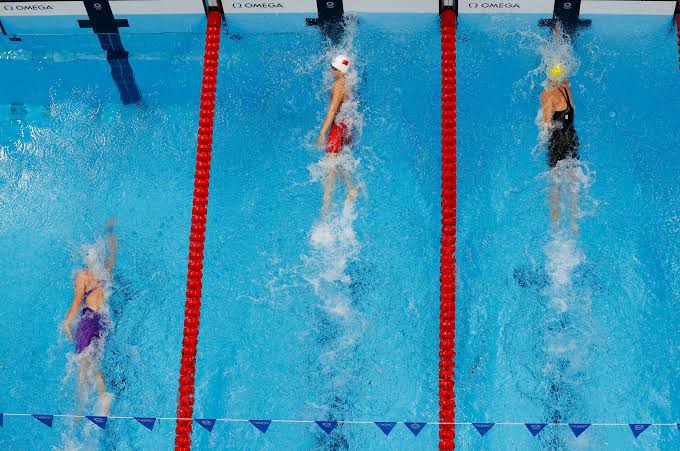China dismisses doping allegations as ‘fake news’ amid reports of swimmer test failures

China has denied allegations of systematic doping among its swimmers following reports that 23 athletes tested positive for a banned substance, trimetazidine (TMZ), ahead of the Tokyo Olympics in 2021. The claims, which surfaced over the weekend, were dismissed by Beijing as “fake news,” and the World Anti-Doping Agency (WADA) stated there is “a lack of any credible evidence” to support the allegations.
The controversy began when the New York Times and German broadcaster ARD reported that confidential documents revealed the positive tests for TMZ, a prescription heart drug banned in athletes due to its performance-enhancing properties. Despite the alleged positive tests, the athletes were allowed to compete in the Tokyo Olympics after China’s sports authorities concluded that they had inadvertently ingested the substance from food during competitions in late 2020 and early 2021. Many of these athletes won medals, including gold, and several are expected to compete in the upcoming Paris Olympics.
China’s foreign ministry swiftly responded to the accusations, emphasizing that the reports were not based on factual information. Spokesman Wang Wenbin stated, “The relevant reports are fake news and not factual.” He further noted that the World Anti-Doping Agency had issued a clear response indicating their support for China’s findings. However, the United States Anti-Doping Agency criticized WADA’s response, calling the failed test reports “crushing” and a “devastating stab in the back of clean athletes.”
To address the allegations, China’s anti-doping centre conducted an in-depth investigation and found that the athletes had ingested contaminated drugs “without their knowledge.” According to Wang, the Chinese swimmers involved were not at fault, and their behavior did not constitute a doping violation. WADA confirmed the findings of China’s anti-doping centre, providing additional support to China’s position. Australian coach Denis Cotterell, who has worked with the Chinese Swimming Association, dismissed claims of systemic state-run doping, saying they were “so far from anything I have seen.”
Chinese state media took a defensive stance on the matter, downplaying the allegations and suggesting that other countries were conspiring against China’s national swim team. Xinhua news agency released an article without detailing the allegations, instead focusing on WADA’s supportive statement. Meanwhile, the state-owned tabloid Global Times suggested the allegations were part of a Western effort to undermine China’s rise as a sporting powerhouse.
Despite Beijing’s firm response and WADA’s backing, China’s swimming program has faced doping controversies in the past. High-profile cases include seven Chinese swimmers testing positive for steroids at the 1994 Asian Games in Hiroshima and swimmer Yuan Yuan’s 1998 ban following the discovery of growth hormone in her luggage during the world championships in Perth. Three-time Olympic champion Sun Yang has also faced doping bans, the most recent for TMZ, which raised suspicions about the sport’s integrity in China.












